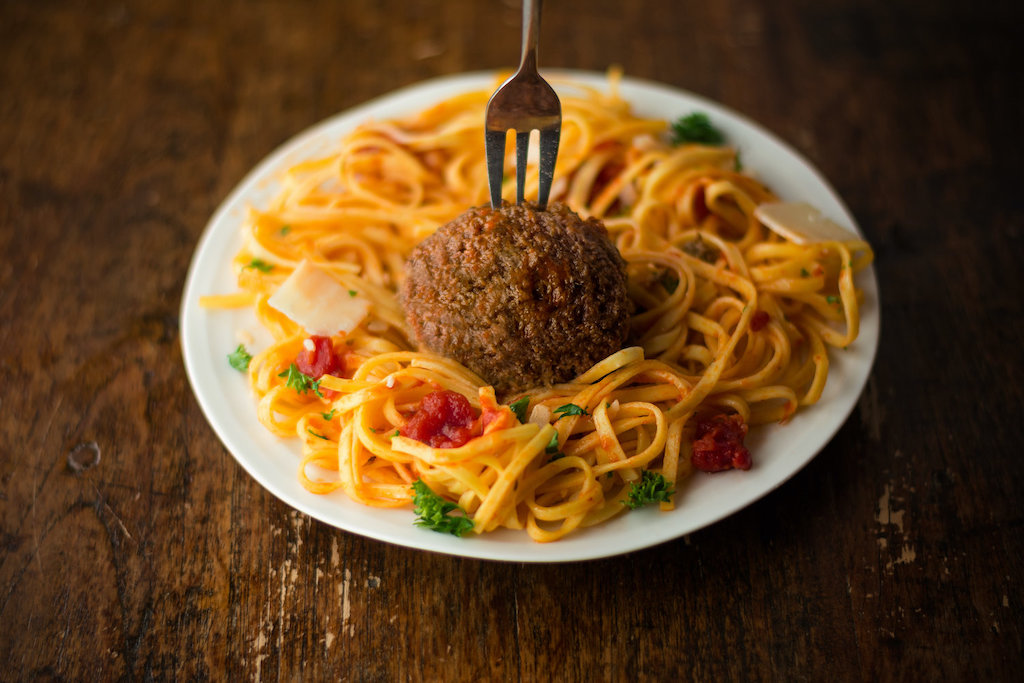7 Mins Read
Months after voting to ban the production and sale of cultivated meat in the country, Italy has withdrawn its notification of the proposed bill to the EU. But while this could spell a victory for alt-protein and a sustainable future food system, it may not all be rosy.
In March of this year, Giorgia Meloni’s newly appointed far-right government proposed a draft law to ban lab-grown food in Italy – which included cultivated meat – to “safeguard our nation’s heritage”. Anyone found to produce or trade these proteins risked facing a €60,000 ban and having their manufacturing plants closed down.
It drew criticism from activists and opposition politicians. Riccardo Magi, president of the left-wing party Più Europa, called it “a new crime” by the government: “They are taking it out on synthetic food and prefer to continue with their reckless prohibition, instead of doing research and developing a technology that could allow us to pollute and kill less.”
Good Food Insitute Europe’s policy head Alice Ravenscroft said the move would shut down the economic potential of this field, hold back scientific progress, and limit consumer choice. “Italy would be left behind as the rest of Europe and the world progresses towards a more sustainable and secure food system. And the 54% of Italians who already want to try cultivated meat would be banned from doing so,” she cautioned.

Backtracking on proposed cultivated meat ban
Despite the backlash, the Italian senate approved this bill in July, with 60% of senators voting in favour of banning the manufacturing and sale of cultivated meat, claiming it would protect human health and national heritage. The bill still needed to be approved by the Chamber of Deputies, the parliament’s lower house. The proposal was in tandem with a potential ban on the use of meat-related terms on plant-based meat labels.
Italy had submitted what is called a Technical Regulations Information System (TRIS) notification to the EU, which is a procedure that aims to prevent the creation of barriers in EU countries. Essentially, if Italy wants to ban cultivated meat, it needs EU approval, with other members of the bloc having the opportunity to weigh in on the decision as well.
But according to the animal advocacy group Essere Animali, Italy withdrew its TRIS notification on Friday, in light of ongoing parliamentary discussions and potential changes. And while it may be seen as a softening of its stance on alt-protein, it’s likely a way to avoid official rejection from the EU, as it’s understood that Italy knew its proposed ban would be denied by the bloc, with some member states already reacting negatively to the draft measure.
There’s also the fact that due to EU trade laws, Italy’s bill still wouldn’t be able to ban future imports of cultivated meat products, as long as they obtain regulatory approval. The EU has stringent measures around the regulation of cultured meat – classed as “novel foods” – and no company has filed for regulatory approval in the region so far. But it has expressed support for alt-protein and sustainable food production: just last month, for example, the EU Parliament’s Agriculture Committee voted to implement a strategy to increase the production of plant proteins in the EU.

Anticipating the EU’s rejection, Italy’s withdrawal is being seen as a halt to proceedings, but not necessarily a win for alt-protein. “We are happy to see that the ideological and anti-scientific approach of the Italian government is finding a difficult wall to overcome, so much so that it is forced to do a major about-face,” noted Essere Animali development manager Claudio Pomo.
But he added: “What happened is certainly an important result, but it is not yet a definitive victory, and we must not let our guard down. [Agricultural] minister [Francesco] Lollobrigida has already said that he wants to move forward with this battle, and there will certainly be other moves.”
Robert E Jones, president of industry association Cellular Agriculture Europe, similarly welcomed the news and cautioned that the Italian government will likely continue to pursue a ban. “While it is a positive sign that Italy has withdrawn its TRIS notification, the battle to protect complementary protein innovations is still ongoing,” he told Green Queen.
“We expect the Italian government will soon move forward with its national ban on cellular agriculture and meat terms for plant-based products while evading any scrutiny by the EU Commission,” he added. “As such a move will be a blatant violation of EU law, it is yet another sign that this is all political theatre to fulfil a campaign promise to a vocal minority, and a monumental distraction from the real conversation we need to have about creating a climate-resilient food system in Europe.”
Preserving heritage against food security
So where does that leave Italy and its national heritage? Stefano Lattanzi, CEO of Italian cultivated meat consortium Bruno Cell, told Time that Italy’s ban would damage local innovation, adding that the government’s “frontal attack” makes no sense. “Here in Italy, we are fanatics with our food,” he said. So when politicians use the word ‘synthetic’ – which is incorrect because cultivated meat is real meat – it is something like blasphemy for us.”
This idea of national heritage and pride in its culture was portrayed wonderfully by Marianna Giusti in the Financial Times in March. “There’s a dark side to Italy’s often ludicrous attitude towards culinary purity,” she wrote.
She explained how the archbishop of Bologna suggested adding pork-free tortellini to its San Petronio feast as an inclusive gesture for Muslim residents. Far-right League party leader Matteo Salvini responded by saying: “They’re trying to erase our history, our culture”. This is despite pork not being a tortellini filling until the late 19th century.

Now, as another far-right leader heads the government, Giusti wrote: “Italian food is as much a leitmotif for rightwing politicians as beautiful young women and football were in the Berlusconi era.” In this vein, Lollobrigida suggested that a task force be established to monitor quality standards in Italian restaurants globally, fearing that “chefs may get recipes wrong, or use ingredients that aren’t Italian”.
In a piece titled ‘Lab Meat Skeptics, Please Just Get Out of the Way’, Bloomberg columnist Amanda Little outlined why tradition might need to give way for innovation, with the planet burning and our food system being a primary contributor to it: “We have entered an era of disruption and adaptation that is understandably painful for the food-nostalgic, but unavoidably necessary.”
Let Italians decide what they want from their food
So where does Italy go from here? No one knows for sure yet. What we do know for certain is that the EU itself is lagging behind other governments when it comes to alt-protein regulation. Singapore and the US have already approved the sale of cultivated meat, and Switzerland and the UK are currently considering applications from Aleph Farms – with the latter said to be looking to fast-track the process.
“The EU already has a robust regulatory process in place for confirming the safety of new foods like cultivated meat, and regulators in the United States and Singapore have already found it to be safe,” GFI Europe’s Ravenscroft said. “The government should let Italians make up their own minds about what they want to eat, instead of stifling consumer freedom.”
And Italians shouldn’t worry. The UN’s Food and Agriculture Organization and the World Health Organization have both allayed fears and misconceptions about cultivated meat, playing down concerns about tumour formation, cancer and other health ill-effects caused by cell-cultured meat. The negative impact of GMOs and concerns about human infections have been eased in a joint report by the two bodies.

Cultural anthropologist and Follow the Future founder Dr Muriel Vernon reasoned how cultivated meat should be thought of as just another part of an animal – one that has never existed. “If we accept the fact that a single animal can be arbitrarily cut up into vastly different price categories based on equally arbitrary cut preferences, then we may not be so far off in adding a new cut that tastes as good as the top existing cut, but appeases our growing appetite for ethics and sustainability,” she wrote.
In another contribution to the tradition vs future debate, Cecilia Manduca, a VC at Talis Capital, compared the ‘BioRevolution’ to the Industrial Revolution. “SynBio allows society to move away from using centralised, huge, polluting factories as primary production facilities, towards a world where primary goods are produced locally, efficiently, sustainably and through waste or organic feedstocks,” she wrote. “Cells can enable us to produce whatever we want, wherever and whenever we need, potentially transforming manufacturing and supply chains as we know them.”
Ahead of the Chamber of Deputies debate last month, GFI Europe’s Italy policy consultant, Francesca Gallelli, said the alt-protein sector will create tens of thousands of jobs and offer opportunities for farmers to diverse and produce high-value proteins. “The government must ensure those jobs are created in Italy, rather than overseas,” she noted. “Without engaging in an open and fully informed debate, Italy will cut itself off from crucial opportunities for sustainable development and economic growth.”
As evidenced by developments around the world, cultivated meat feels inevitable – can Italy and its far-right government put its fork down?



